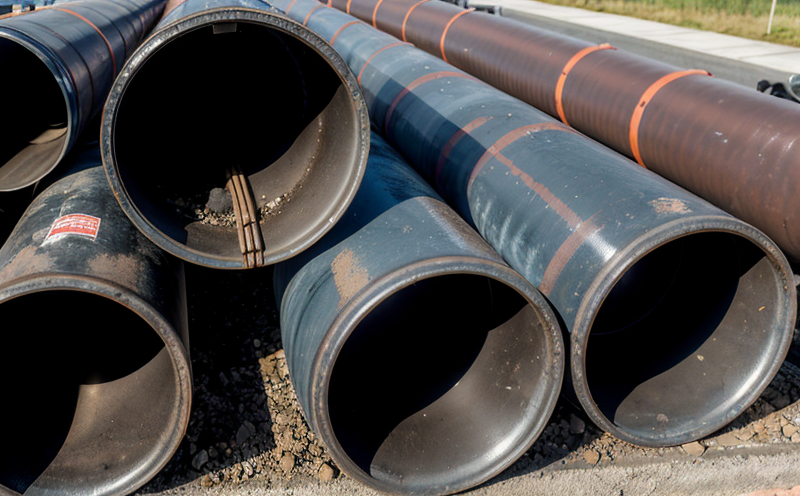UNE EN ISO 21003 Multilayer Plastic Pipe Testing
The UNE EN ISO 21003 standard is a comprehensive framework for the mechanical testing of multilayer plastic pipes. This method ensures that the pipes are robust, reliable, and suitable for various applications in infrastructure projects.
This test procedure focuses on evaluating the physical properties of multilayer plastic pipe specimens under defined conditions to ensure they meet stringent quality requirements. The standard is widely used by manufacturers, regulatory bodies, and industry professionals to guarantee the integrity and safety of pipes used in construction and infrastructure.
The testing process includes several key steps that are essential for accurate results:
- Sample Preparation: Specimens must be cut according to standard dimensions ensuring consistency across tests. This includes removing any defects or imperfections.
- Loading Configuration: The specimens are subjected to various stress conditions that mimic real-world usage scenarios, such as internal pressure and external loadings.
- Data Collection: High-precision instruments capture the mechanical properties of the pipes, including tensile strength, yield strength, elongation at break, and modulus of elasticity.
The UNE EN ISO 21003 standard is particularly important for industries that rely on multilayer plastic pipe systems. Its application ensures compliance with international quality standards, which can significantly enhance the performance and longevity of infrastructure projects.
| Test Parameter | Description |
|---|---|
| Tensile Strength | The maximum stress a material can withstand before breaking. |
| Yield Strength | The stress at which a material begins to deform elastically. |
| Elongation at Break | The percentage increase in length of the specimen before fracture. |
| Modulus of Elasticity | A measure of a material's stiffness, or its resistance to deformation under an applied force. |
Scope and Methodology
The scope of UNE EN ISO 21003 extends beyond the mere mechanical testing of multilayer plastic pipes. It encompasses a wide range of applications, from potable water supply systems to wastewater management infrastructure.
| Application | Description |
|---|---|
| Potable Water Supply Systems | Ensuring the safety and quality of water distribution. |
| Wastewater Management Infrastructure | Maintaining effective drainage systems for public health. |
| Agricultural Irrigation Systems | Supporting efficient water use in agriculture. |
The testing methodology involves several stages that must be adhered to strictly:
- Sample Preparation: Specimens are cut from the pipe according to standard dimensions and orientation.
- Loading: The specimens are subjected to a combination of internal pressure and external loads, simulating real-world conditions.
- Data Collection: High-precision instruments measure the mechanical properties under specified loading conditions.
- Evaluation: Results are compared against acceptance criteria defined in UNE EN ISO 21003 to determine compliance.
Benefits
- Ensures compliance with international standards, enhancing global trade opportunities.
- Reduces the risk of failures in critical infrastructure projects.
- Improves product quality and reliability for manufacturers.
- Sustains public health and safety by ensuring the integrity of water distribution systems.
- Supports sustainable development goals by promoting efficient use of resources.
International Acceptance and Recognition
The UNE EN ISO 21003 standard is recognized globally for its rigorous testing protocols. It is widely accepted in countries that prioritize infrastructure quality and safety, such as the United States, Canada, and various European nations.
Its acceptance ensures that manufacturers can export their products to markets with strict quality control requirements. Additionally, compliance with this standard provides confidence to end-users about the reliability of the pipes they purchase.





